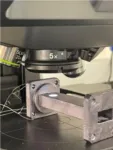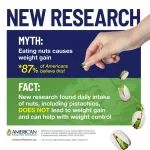(Press-News.org)
Fukuoka, Japan—Researchers at Kyushu University have found that Japan's current policy of stopping the sale of gas vehicles by 2035 and transitioning only to hybrids and electric vehicles may be insufficient to reduce the country's CO2 emissions and prevent it from reaching its decarbonization target goals. In fact, emissions may temporarily increase.
The team's analysis showed that along with the policy, the Japanese government must simultaneously work to increase production of clean energy, decarbonize the manufacturing process, and extend vehicle lifetime.
In the effort to combat the climate crisis most countries in the world have implemented policies that reduce their production of greenhouse gases such as CO2, and Japan is no different. One such policy is a ban on the new sale of fossil fuel powered vehicles. The country is working to ban the sale of new gas vehicles by 2035, and move to only sell EVs, HVs, and FCVs, electric vehicles, hybrid vehicles, and fuel cell vehicles respectively.
While this is a move in the right direction, Professor Shigemi Kagawa from Kyushu University's Faculty of Economics reports in his new paper, published in the Journal of Cleaner Production, that banning new gas vehicles may not be enough to reach Japan's decarbonization goals.
"Our team focused on how much CO2 is produced during a car's entire lifetime, from the first resource extracted from the earth to when it gets destroyed. Looking at the lifecycle CO2, or LC-CO2, of a car allow us to take a larger view on a car's emissions," explains Kagawa.
The team found a number of policy points that need to be addressed, including decarbonizing the supply chain, improving the country's energy mix, and extending vehicle lifetime.
"Just building a car is energy intensive. All the building materials need to be mined, processed, shipped, and constructed. Every part of that process produces CO2," Kagawa continues. "Construction of an EV can produce 1.5 to 2 times more emissions compared to a gas car. If car manufacturers increase their production of EVs without decarbonizing the supply chain, then emissions reduction will stagnate."
Moving Japan's energy mix to more renewable sources is also a vital step in this process. A country's energy mix is the ratio of fuel sources it uses to make electricity. In 2020, Japan's energy mix was 76% fossil fuels and 20% renewables. So, even if everybody switched to EVs the energy required to charge such vehicles still results in fossil fuel emissions.
"Japan's planned 2030 energy mix is 50% fossil fuels and 28% renewable energy. That will not adequately reduce LC-CO2. The EV policy starting in 2035 aims to contribute to a 10% reduction or 2.9 Mt (million tons) of CO2 in vehicle emissions in 2050. This reduction level falls far short of achieving a carbon-neutral vehicle society," explains Kagawa. "Japan needs to aim toward the International Energy Agency (IEA) mix of 10% fossil fuels and 88% renewables by 2050. Our models show a reduction of an additional 10%, a potential of 3.4 Mt of CO2, in vehicle emissions in 2050 if Japan follows the IEA policy mix."
Finally, extending a car's lifetime, for both EVs or gas vehicles, can go a long way to reduce LC-CO2. The average lifespan of a car in Japan is 13 years. The research team's models found that the if a car registered between 1993 and 2050 has its average lifetime extended by even one year it could reduce up to 90 Mt of overall CO2 emissions for the country. Conversely, if a vehicle's lifespan is reduced by one year, within the same time frame, CO2 emissions increase by roughly the same amount.
"When we expanded our model to extending the lifespan of a vehicle by 10 years, the potential reduction in CO2 emissions can be more than 600 Mt," Kagawa states.
The team hopes that their analysis will encourage Japan to implement these policies so it can continue to effectively combat the climate crisis and make their goal of carbon neutrality by 2050 a reality.
"We can make efforts ourselves by trying to drive our cars less and for a few years longer, and even consider buying used vehicles instead of new ones," concludes Kagawa. "But the government needs to provide attractive subsidies for those programs, and manufactures should work to encourage vehicle repair and parts replacement. The climate crisis is a complex issue, and the right policies can go a long way in providing us a better future."
###
For more information about this research, see "Environmental consequences of Japan's ban on sale of new fossil fuel-powered passenger vehicles from 2035," Minami Kito, Yuya Nakamoto, Shigemi Kagawa, Shunichi Hienuki, Klaus Hubacek, Journal of Cleaner Production, https://doi.org/10.1016/j.jclepro.2024.140658
About Kyushu University
Kyushu University is one of Japan's leading research-oriented institutes of higher education since its founding in 1911. Home to around 19,000 students and 8,000 faculty and staff, Kyushu U's world-class research centers cover a wide range of study areas and research fields, from the humanities and arts to engineering and medical sciences. Its multiple campuses—including one of the largest in Japan—are located around Fukuoka City, a coastal metropolis on the southwestern Japanese island of Kyushu that is frequently ranked among the world's most livable cities and historically known as Japan's gateway to Asia. Through its Vision 2030, Kyushu U will 'Drive Social Change with Integrative Knowledge.' Its synergistic application of knowledge will encompass all of academia and solve issues in society while innovating new systems for a better future.
END
The European project entitled “Bone, Brain, Breast and Axillary Medical Microwave Imaging Twinning (3BAtwin)” has been awarded with €1.5M to reinforce our training on Medical Microwave Imaging (MMWI). The project is led by the Faculty of Sciences of the University of Lisbon (Ciências ULisboa) (Portugal), in collaboration with University of Galway (Ireland) and Turin Polytechnic University (Italy).
The goal of this twinning project is to accelerate the transition of Medical Microwave Imaging “from the research bench ...
PLYMOUTH MEETING, PA [February 7, 2024] — The National Comprehensive Cancer Network® (NCCN®)—an alliance of leading cancer centers—today published its first ever set of treatment recommendations pertaining to neuroblastoma. Neuroblastoma is a type of solid tumor cancer that typically occurs in early childhood, with the majority diagnosed before age five.[1] Neuroblastoma is the most common type of solid tumor (outside of brain tumors) in children, with more than 700 cases diagnosed in the United States every year.[2] Research innovations ...
Highlights:
Alterations in gut microbiota may influence immune system changes during pregnancy.
However, the connection isn’t well known.
Researchers in China analyzed gut microbiota, metabolites and cytokines in healthy pregnant and non-pregnant young women.
The new study identifies numerous pathways by which the gut microbiome may change the immune system.
Washington, D.C.—During pregnancy, a woman’s immune system changes dramatically but researchers don’t yet understand all the underlying mechanisms. A new study shows how the gut microbiota may play a role.
In a paper published this week in mSystems, researchers in China report that during pregnancy, ...
Highlights:
Wastewater, even when treated, can deliver antimicrobial resistance genes to rivers.
Further research is needed on if rivers function as a protective barrier.
Researchers subjected biofilms from pristine rivers to wastewater.
Antibiotic resistant bacteria from wastewater successfully integrated at first, but in the warmest water were edged out by naturally occurring microbes.
The study suggests that temperature can influence the microbial competition in rivers.
Washington, D.C.—Antimicrobial resistant genes (ARGs) from wastewater can end up in natural biofilms in rivers, but they may not stick around very long. This week in mSphere, ...
Accelerating Innovation in Medicine - Health Initiative (AIM-HI) is proud to celebrate a significant milestone in the journey of one of its esteemed portfolio companies, Yiviva. A clinical-stage platform biotechnology company, Yiviva has entered into a Memorandum of Understanding (MOU) with AstraZeneca China, a multinational biopharmaceutical leader.
AIM-HI exists to support bold new ideas in treating and preventing cancer. So when Yale Professor Yung-Chi Cheng approached us years ago about mining ancient Chinese herbs for modern therapies, we took notice. Other investors ...
DALLAS, Feb. 7, 2024 — Research teams from Northwestern University Feinberg School of Medicine, New York University and Duke University will work together to assess the accuracy of the American Heart Association’s new PREVENTTM risk calculator with funding from the Association’s De-biasing Clinical Care Algorithms project.
The American Heart Association, celebrating 100 years of service in 2024, is the single largest non-government supporter of heart and brain health research in the U.S. The de-biasing project is funded by a grant from the Doris Duke Foundation to study the role of race and ethnicity in clinical equations and their ...
Geographic sorting along ideological lines is on the rise. Counties and regions of the United States differ in political ideology. But do they differ in personality as well? Further, are people who ‘fit’ their communities healthier, happier, or more highly achieving than those who do not?
In the context of these growing divisions and to address this question, a study by Florida Atlantic University’s Kevin Lanning, Ph.D., senior author and a professor of psychology and data science in the Harriet L. Wilkes Honors College on FAU’s John D. MacArthur Campus in Jupiter, and ...
One of the most important components of satellites that enable telecommunication is the waveguide, which is a metal tube for guiding radio waves. It is also one of the heaviest payloads satellites carry into orbit. As with all space technology, reducing weight means reducing the amount of expensive and greenhouse gas-producing fuel it takes to launch a rocket, or increasing the number of devices carried by the same rocket to space. Researchers from Drexel University and the University of British Columbia are trying to lighten the load by creating and testing a waveguide made ...
More than half of Americans do not currently meet the daily recommendation of 5–7 ounce equivalents^ of nuts and seeds per week.1
One possible contributor to such low intakes of tree nuts could be a fear that the calories or fat composition of tree nuts leads to weight gain.
For example, past studies suggest that up to 87% of Americans think eating nuts can lead to weight gain due to their dietary fat content2 despite scientists confirming that eating nuts every day, including pistachios,3 can be an achievable and simple strategy to ...
A more accurate way of identifying underground nuclear tests, including those conducted in secret, has been developed by researchers at The Australian National University (ANU).
The new method could help international observers better identify tests carried out by countries or actors known to possess nuclear weapons, as well as providing new information about those suspected of being armed.
According to lead author Dr Mark Hoggard, in the aftermath of the Cuban Missile Crisis and Partial Test Ban Treaty in the 1960s, testing of nuclear ...







